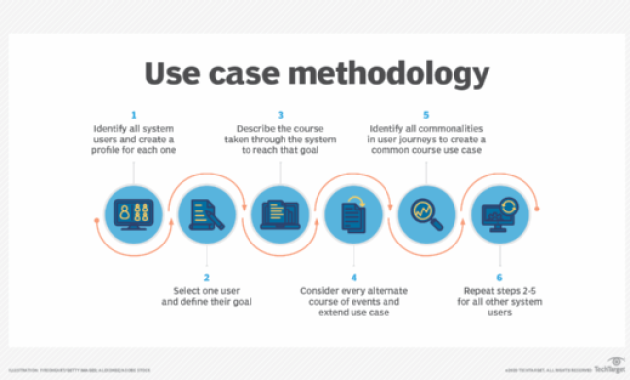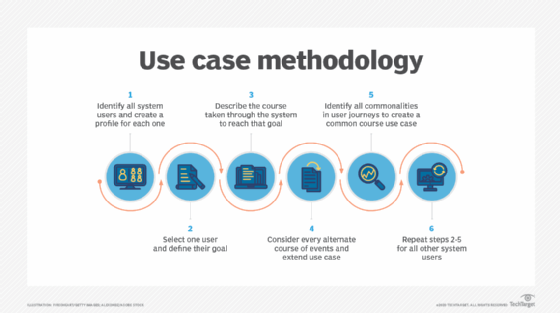
Unveiling the Power: Real-Life Use Cases for Business Intelligence Software
In today’s data-driven world, businesses are awash in information. The challenge isn’t just collecting this data, but understanding it. This is where Business Intelligence (BI) software steps in. It transforms raw data into actionable insights. This article explores use cases for Business Intelligence software in the real world. We’ll see how it drives better decision-making across various industries.
Business Intelligence software isn’t just a buzzword. It is a vital tool for businesses of all sizes. It empowers them to make informed decisions. It does this by analyzing data. This analysis provides valuable insights. These insights improve operational efficiency and profitability.
Understanding Business Intelligence Software
At its core, Business Intelligence software provides a comprehensive view of business operations. It integrates data from multiple sources. This includes sales, marketing, finance, and operations. The software then analyzes this data. It reveals trends, patterns, and anomalies. This allows businesses to anticipate challenges and seize opportunities.
The key components of Business Intelligence software include:
- Data Warehousing: Centralized storage for all business data.
- Data Mining: Discovering patterns and insights from large datasets.
- Online Analytical Processing (OLAP): Analyzing data from multiple perspectives.
- Reporting and Dashboards: Presenting data visually for easy understanding.
Real-Life Use Cases: Driving Success Across Industries
The applications of Business Intelligence software are vast. They span across various sectors. Let’s examine some compelling use cases for Business Intelligence software in the real world. We’ll see how it transforms operations and boosts performance.
Retail: Optimizing Sales and Inventory
Retailers generate massive amounts of data. This includes sales transactions, customer behavior, and inventory levels. Business Intelligence software helps retailers unlock this data’s potential. It allows them to optimize sales strategies and inventory management.
Use cases for Business Intelligence software in retail include:
- Sales Analysis: Identifying top-selling products, peak sales times, and customer preferences.
- Inventory Optimization: Predicting demand and managing stock levels to minimize waste and ensure product availability.
- Customer Segmentation: Grouping customers based on behavior and preferences. This allows for targeted marketing campaigns.
- Price Optimization: Analyzing price elasticity and adjusting prices. This maximizes revenue and profitability.
For example, a clothing retailer can use BI software. They can analyze sales data. This data can identify which items are trending. They can then adjust inventory levels. This ensures they meet customer demand. They can also create targeted promotions. This increases sales and customer loyalty.
Healthcare: Improving Patient Care and Operational Efficiency
The healthcare industry is rich with data. This includes patient records, treatment outcomes, and operational metrics. Business Intelligence software plays a crucial role in healthcare. It improves patient care and operational efficiency.
Use cases for Business Intelligence software in healthcare include:
- Patient Analysis: Analyzing patient data to identify risk factors and predict health outcomes.
- Treatment Effectiveness: Evaluating the effectiveness of different treatments and interventions.
- Resource Optimization: Managing hospital resources. This includes staff, equipment, and bed occupancy.
- Fraud Detection: Identifying and preventing fraudulent claims.
Hospitals can use BI software to analyze patient data. They can then identify patients at high risk. They can proactively provide care. This improves patient outcomes and reduces costs.
Manufacturing: Streamlining Production and Reducing Costs
Manufacturing companies generate vast amounts of data. This includes production processes, supply chain data, and quality control metrics. Business Intelligence software helps manufacturers improve efficiency. It reduces costs and enhances product quality.
Use cases for Business Intelligence software in manufacturing include:
- Production Monitoring: Tracking production performance in real-time.
- Quality Control: Analyzing data to identify and address quality issues.
- Supply Chain Optimization: Managing inventory levels and optimizing the flow of materials.
- Predictive Maintenance: Predicting equipment failures and scheduling maintenance. This reduces downtime.
A manufacturing company can use BI software. They can monitor production processes. They can then identify bottlenecks and inefficiencies. This allows them to optimize production and reduce costs.
Finance: Managing Risk and Improving Financial Performance
The financial industry deals with complex data. This includes financial transactions, market data, and customer information. Business Intelligence software is crucial for managing risk. It also helps improve financial performance.
Use cases for Business Intelligence software in finance include:
- Risk Management: Assessing and mitigating financial risks.
- Fraud Detection: Identifying and preventing fraudulent transactions.
- Performance Analysis: Analyzing financial performance metrics.
- Customer Relationship Management: Understanding customer behavior and preferences. This improves customer service.
Banks can use BI software. They can analyze customer transaction data. They can then identify potential fraud. This protects the bank and its customers.
Marketing: Enhancing Campaigns and Customer Engagement
Marketing teams generate large amounts of data. This includes website traffic, social media engagement, and campaign performance. Business Intelligence software helps marketers optimize campaigns. It enhances customer engagement.
Use cases for Business Intelligence software in marketing include:
- Campaign Analysis: Analyzing campaign performance metrics. This includes click-through rates and conversion rates.
- Customer Segmentation: Segmenting customers based on behavior and demographics.
- Market Research: Analyzing market trends and customer preferences.
- Personalization: Creating personalized marketing experiences.
Marketing teams can use BI software. They can analyze campaign performance data. They can then optimize campaigns. This increases their effectiveness and ROI.
Choosing the Right Business Intelligence Software
Selecting the appropriate Business Intelligence software is crucial. Consider your business needs. Evaluate features and functionalities. Research vendors and their offerings. Factors to consider include:
- Ease of Use: The software should be user-friendly and intuitive.
- Scalability: The software should be able to handle growing data volumes.
- Integration: The software should integrate with existing systems.
- Reporting Capabilities: The software should offer robust reporting and dashboarding features.
- Cost: Evaluate the total cost of ownership.
There are numerous Business Intelligence software options available. These include Tableau, Power BI, and Qlik. Research and compare these options. Choose the one that best aligns with your business requirements.
The Future of Business Intelligence
Business Intelligence software continues to evolve. It incorporates new technologies. This includes artificial intelligence (AI) and machine learning (ML). These advancements enhance data analysis capabilities. They provide even deeper insights.
Key trends in the future of BI include:
- AI-powered Analytics: Using AI to automate data analysis and generate insights.
- Self-Service BI: Empowering business users to analyze data.
- Cloud-Based BI: Utilizing cloud platforms for data storage and analysis.
- Data Visualization: Using advanced data visualization techniques. This simplifies data interpretation.
As technology advances, BI will become even more essential. It will drive business success. It will enable data-driven decision-making. Businesses that embrace these advancements will gain a competitive advantage.
Conclusion: Harnessing the Power of Data
Business Intelligence software is a powerful tool. It empowers businesses. It enables them to make informed decisions. It drives better operational efficiency. It boosts profitability. By understanding the various use cases for Business Intelligence software, businesses can leverage its potential. They can transform raw data into actionable insights. They can achieve sustainable growth. Implementing BI software is a strategic imperative. It is essential for success in today’s competitive landscape. [See also: The Impact of Data Analytics on Business Strategy]

